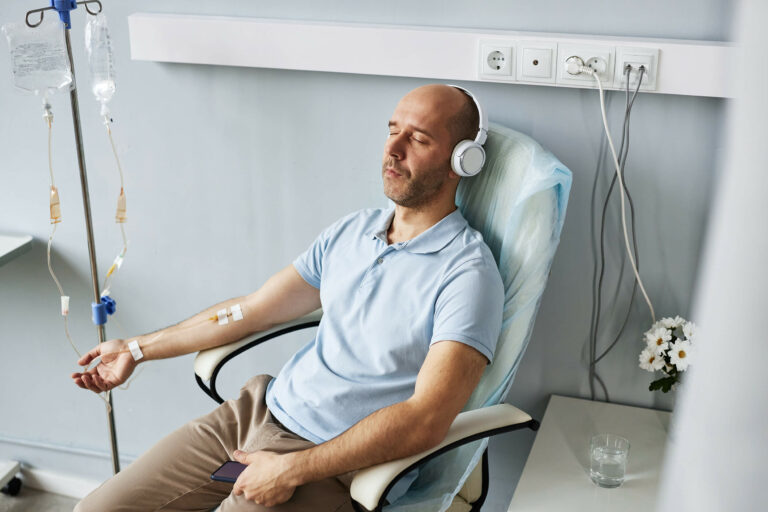4 Ways to Advocate for Yourself in an Oncology Clinical Trial
The Importance of Understandable Health Care Information and Where to Get It Nothing in your life has prepared you to deal with cancer. Fear of the unknown can be paralyzing, and anxiety over what you’ve heard about cancer treatment may be exhausting. Oncology clinical trials hold hope, but you shouldn’t have to try to decode complicated research options during this challenging time. Whether you’re a patient or a caregiver, understanding the disease, treatment plans, and clinical trial options is essential for navigating a cancer diagnosis. It’s also critical that you feel informed enough to actively participate in care decisions. But how do you get such information? Let’s dive in. 3 Reasons Why Understandable Information Is Critical in Oncology Clinical Trials Medical jargon is often confusing for patients and caregivers alike, but easy-to-understand information can be empowering! Understanding the details of a diagnosis, treatment plan, and clinical research trial options can help you gain more control, better grasp your emotions, and develop stronger communication with your care team. #1 More Control A cancer diagnosis may leave you feeling powerless. But, by understanding how a clinical trial treatment works, you might feel more in control. #2 Emotional Support Uncomfortable emotions, like fear and anxiety, are often rooted in the unknown. But a better understanding of a disease or treatment may make things easier. #3 Better Communication How are you supposed to ask your doctor questions if you don’t understand what’s happening? Understandable information can help empower you to ask informed questions and start conversations about new treatments, relief for side effects, wholistic care options, and more. 4 Tips for Advocating for Yourself in an Oncology Clinical Trial Easy-to-understand medical materials are important, but they’re not always available. What can you do if the information provided by your health care provider is not enough to understand a diagnosis or clinical trial options? Here are 4 tips for advocating for yourself and getting clearer, more easily digestible information: #1 Talk to Your Medical Team Your medical team is there to help. Nurses are often the best people to start with, but you can also talk to your oncologist or even the front desk staff. Express your concerns about the provided information and ask for more resources. #2 Talk to a Social Worker or Mental Health Counselor Many mental health professionals specialize in supporting cancer patients and their caregivers. These experts can offer clarity and assistance. #3 Talk to Your Peers Though every cancer journey is unique, there is often much to be learned from those who have walked similar paths. Connect with other patients and caregivers at treatment centers or join an in-person or online support group. Ask your medical team, social worker, or counselor for recommendations. #4 Use Online Resources There are many online resources offering free support for cancer patients and caregivers, like Leveling Health. Leveling Health partners with experts and advocates to break down complex health care information into clear, conversational stories — many for free. Their resources help patients and caregivers: Just ask this cancer survivor: “I loved the beauty of their books; I loved the length. I loved the content. I also think that the medical definitions page is invaluable. The resources page is very helpful. The personal stories, stories of positive attitudes, inspiration, faith, and healing, are good.” Leveling Health’s resources also foster a sense of community and connection, both of which are essential for navigating cancer and clinical trial participation. As another survivor said, “People need to know what’s normal, that they are normal. That someone knows, in a lot of ways, how they are feeling. Leveling Health removes the isolation.” Make a Difference With Oncology Clinical Trials Clinical trial participation might seem overwhelming as you navigate a cancer diagnosis, but it also offers a way for you to access exclusive treatment, get extra care and attention, and help develop new therapies. By talking to your medical team, working with a social worker or mental health specialist, connecting with your peers, and using resources like Leveling Health, you can arm yourself with knowledge that will help guide and support you throughout your cancer journey. Visit our Resource Library for more information on how you can make a difference through research participation.








